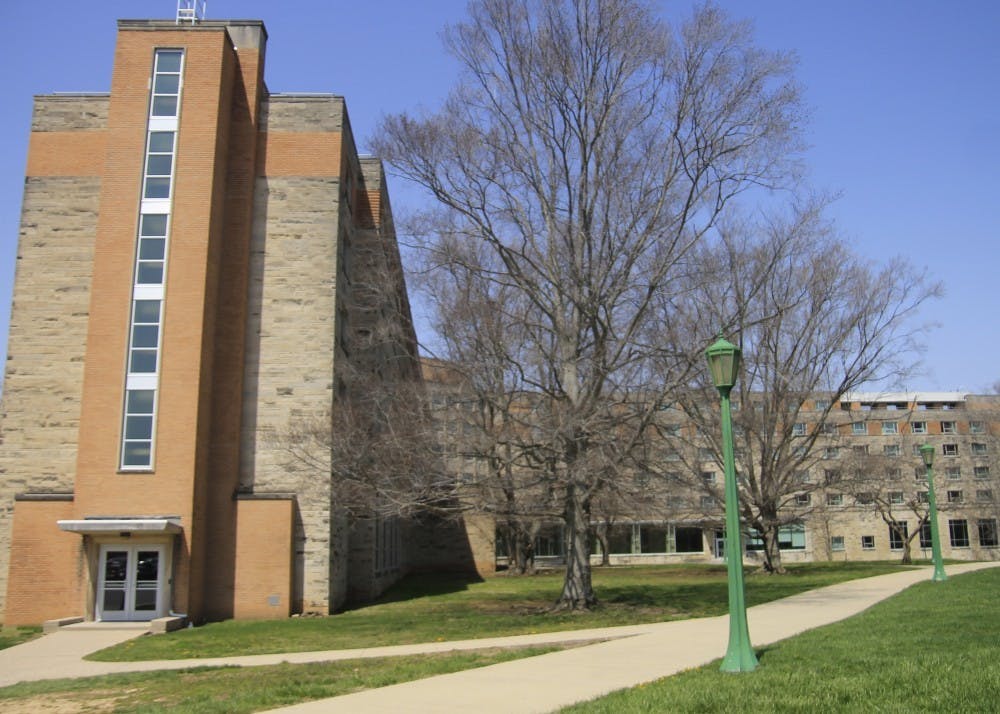Seven on-campus groups have created a project to give students and their families emergency meals.
The IU Food Institute, IU Dining, Campus Kitchen, Crimson Cupboard, the Food Working Group from Sustain IU, IU Student Government and the Graduate and Professional Student Government were all involved in the effort to help students and their families. The IU Food Institute is raising money to pay for the products while IU Dining is providing meals to people in Bloomington Monday through Friday.
Director of the IU Food Institute Carl Ipsen said IU Dining created an online form where people can request a meal for pick-up or delivery the next day. Orders must be placed by 10 a.m. the day before and pick-up is available at Read Hall between noon and 2 p.m. the following day. He said his intern and an intern for Campus Kitchen have been handling the deliveries.
Ipsen said the project, which started April 13, has been manageable, but he’s expecting the number of orders to increase. At the current rate of meals — about 30 per day — the project has enough money to last to the end of the semester, he said.
He said while the form requires an IU login, people can order extra meals for their family.
The IU Food Institute has never been involved in a project like this one before, Ipsen said. He said he believes the project may continue through the summer if there is more demand.
“It’s an emergency project-it’s not meant to go on forever,” Ipsen said. “But if we could keep this going until Bloomington returns to some kind of normal, that would be a goal.”
He said while the IU Food Institute has been funding this project, it has received monetary contributions from other sources such as faculty and alumni. Freebird Farm & Homestead and IU Campus Farm @ Hinkle-Garton, which are both farms in Indiana, have also donated chicken and produce to the project, Ipsen said. Anyone is welcome to donate on IU Food Institute’s website.
Rahul Shrivastav, executive director of IU Dining, said IU Dining has been working with the Food Working Group from Sustain IU on addressing food security since before the pandemic.
“It’s a very tough situation, and we saw an opportunity to provide help for folks that don’t have money, that cannot find a meal, that are struggling for some reason or the other to survive today,” Shrivastav said.
IU Dining chefs and employees are creating the meals under the direction of chef Dave Tallent, Shrivastav said. IU Food Institute and Campus Kitchen have arranged the contactless deliveries, he said. The meals are labeled and placed in Read Hall’s dining area for people to pick up.
There is enough food to be split into two meals or one meal and a snack for later, Shrivastav said. He said the menu is decided ahead of time, and individuals can request dietary preferences such as vegetarian, vegan and allergy-free options.
“It’s very well balanced." Shrivastav said. "There’s protein, there’s starch, there’s vegetables, all kinds of nutritious items."
Shrivastav said each meal costs about $5 to create. He said with current donations, the groups can supply about 800 more meals.
“We are here to do good in whatever way we can,” Shrivastav said.
IU Dining pastry chef Ashley Massie said she volunteered to work on this project in order to help the university and community as much as she could. She said she has been working on the logistics and production side of the operation by trying to keep costs down and giving meals to as many people as possible.
The goal is to make the meals as large as possible while still keeping the cost to produce each meal low, Massie said. She said for some people this may be the only meal they receive that day, so she wants to make sure they have enough food for at least two meals. Some meals provided this week included chicken stir fry, spicy cauliflower sabzi, spring pasta with vegetables, tomatoes and chickpeas, a black bean burrito bowl and eggplant curry with rice and naan.
Massie said the meals are made by a few cooks who are essential employees through IU Dining and one sous chef. The cooks work together at Read Hall to prepare the meals and have different shifts throughout the day to maintain social distancing, she said.
“I think being able to service students and faculty and staff that are suffering with food insecurity right now is huge,” Massie said. “This is such a great way that we can help them do it with healthy and cost-conscious food.”
CORRECTION: A previous version of this story failed to include one of the organizations involved in the project. The IDS regrets this error.




